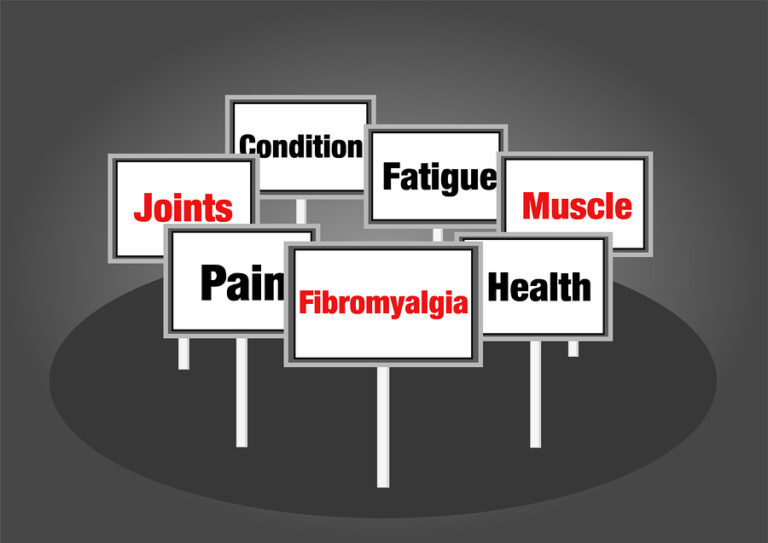Did you know that May is Fibromyalgia Education and Awareness Month?
Most likely, you’ll hear and see facts and stories about fibromyalgia on the news, social media and at local health centers. Fibromyalgia Education and Awareness Month is an excellent time to raise awareness and understanding about this misunderstood illness that can affect adults at any age.

If you are a family caregiver to an aging relative that has fibromyalgia or you want to learn more about the symptoms and treatment of the condition, spend some time educating yourself so that you can boost awareness and even provide better care for your loved one.
What are the Symptoms of Fibromyalgia?
There are many things that medical experts simply don’t know about fibromyalgia. They don’t yet understand what causes it and currently, there is no cure. Symptoms range from headaches, abdominal pain, bloating and constipation to chronic pain in muscles and joints, numbness in hands and feet, insomnia and chronic fatigue.
If this seems like a lot of wide-ranging symptoms, you’re right. The symptoms are non-specific and vary in how they appear from person to person. Also, the symptoms have a lot in common with other diseases and illnesses, so it can be difficult to diagnose. There’s no test for fibromyalgia so doctors can really only diagnose it after eliminating other possibilities.
Who is at Risk for Fibromyalgia?
Fibromyalgia affects mostly middle-aged and elderly women, although it can develop in children and adults at any age and any race or ethnicity. Just under one-tenth of people do develop it for the first time later in life, especially those that have struggled with various types of chronic pain all their lives.
The condition can be so debilitating that it can affect a person’s quality of life and make it difficult for them to accomplish everyday tasks. Many seniors with fibromyalgia rely on family caregivers and elderly care providers for assistance with things like bathing, dressing, and keeping house.
What is the Treatment for Fibromyalgia?
Treating fibromyalgia in seniors depends a lot on which symptoms have presented in the individual. Lifestyle changes can have a big impact on treatment. One of the most effective is mild to moderate exercise and activity. Restful sleep, a healthy diet, massage, and yoga are other ways to provide relief from the chronic pain of the condition. There are some medications that may help, such as pain relievers muscle relaxers, and those designed to alleviate nerve pain.
Helping Seniors With Fibromyalgia
When elderly people are struggling with fibromyalgia, they may no longer be able to take care of their daily needs. Many families find that hiring an elderly care provider is one of the best ways for seniors to still live at home but have the help they need to get through the day with their condition. Elderly care providers can assist seniors with everything from driving, cleaning, and laundry to bathing, dressing, and cooking. Elderly care providers can also help with implementing lifestyle changes, like more activity and healthier meals, that the doctor recommends reducing the symptoms of fibromyalgia.
If you’ve ever wanted to learn more about your aging relative’s fibromyalgia, Fibromyalgia Education and Awareness Month is the ideal time to begin your education.
If you or an aging loved one is considering Senior care in Arlington, VA, please contact the caring staff at Access Home Care Inc. Proudly Serving Northern Virginia and Surroundings for over 12 years. Call Us: (703) 765-9350
Source:
https://www.everydayhealth.com
“My desire to enter into nursing started when one of my older sisters died of kidney disease due to lack of care. At age 15, I decided to enter into nursing so that I could provide quality care to patients.Upon arrival in United States at 21 years of age, I enrolled in T.C Willliams School of Practical Nursing while working as a nursing assistant at a nursing home. I also worked as a part-time home health aide to take of the elderly. After completion of my practical nurse education, I worked in geriatric psychiatry unit at Dominion Hospital and Arlington Correctional facility mental health unit.
I completed Marymount University in 2001 and entered into Home Care as a field case manager.
I held that position for 2 years and as an Administrator, and for another 2 years until Access Home Care was found in 2004."
Today, Access Home Care has over 300 employees and 286 clients.
- How 24-Hour Home Care Is Different From Other Types Of Care - March 19, 2025
- Four Symptoms of Advanced Multiple Sclerosis - March 5, 2025
- How In-Home Care Helps Seniors Recover At Home - February 20, 2025



